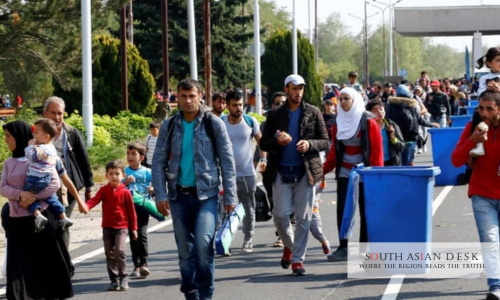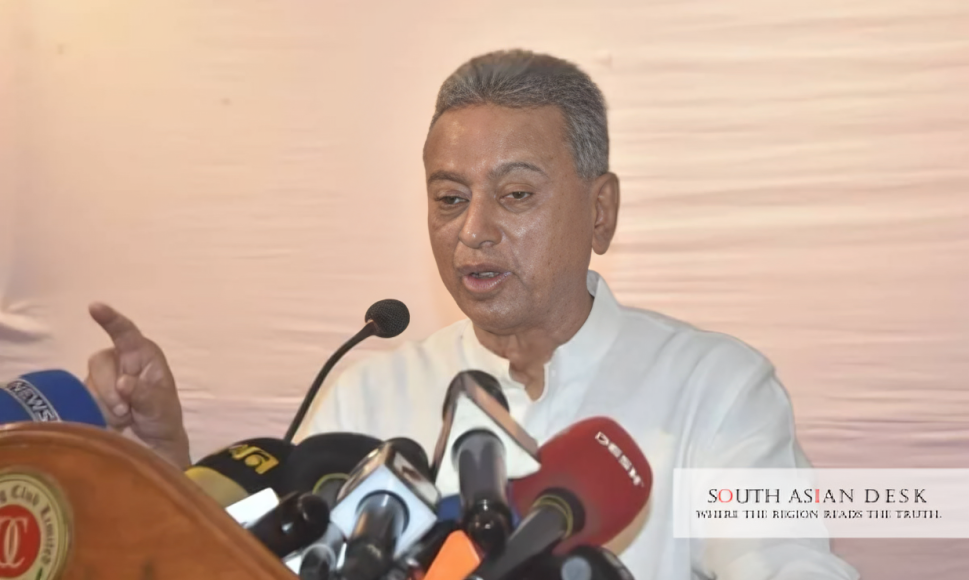VIENNA (South Asian Desk) — Austria deported first Afghan since the Taliban takeover on Tuesday when officials flew a convicted criminal back to Kabul. The move ends a four-year suspension. Officials promise additional returns soon. This action aligns with broader EU efforts to manage migration flows.
This development carries weight for South Asia, where millions of Afghans have sought refuge in Pakistan and India since 2021. Stricter European returns could redirect refugee pressures to the region, straining resources and border controls already burdened by economic woes.
Austria Resumes Afghan Deportations 2025
Austria resumed Afghan deportations in 2025 with the flight of a 31-year-old national convicted of serious offences. Interior Ministry teams escorted the man from Vienna to Kabul International Airport. The operation marked the first such return since August 2021, when Taliban forces captured the Afghan capital.
Government spokespeople confirmed the deportation occurred at 6:45 AM local time on October 21. Austrian authorities suspended all flights to Afghanistan after the Taliban victory amid chaos and human rights concerns. Now, Vienna prioritizes the removal of individuals who have lost asylum eligibility due to criminal acts.
Chancellor Christian Stocker announced the event on social media. “This morning, a man convicted of serious crimes was deported to Kabul – the first deportation to Afghanistan since 2021,” Stocker posted. He added, “Austria is thus sending a clear message: zero tolerance for anyone who has forfeited their right to remain by committing criminal offences.”
Interior Minister Gerhard Karner oversees preparations for future cases. Officials target offenders first to build momentum. Austria processed over 5,000 Afghan asylum applications in the first nine months of 2025, according to data from the Ministry of the Interior. Recognition rates reached 76 percent for Afghans this year, down from 85 percent in 2024, due to increased scrutiny.
The resumption ties to Vienna’s coalition pledge to curb irregular migration. Austria hosts around 60,000 Afghan nationals, many fleeing Taliban restrictions on women and minorities. Yet, deportations resume despite global warnings. United Nations agencies label Afghanistan unsafe, citing ongoing violations.
Austria Deported First Afghan Criminal to Kabul
The deported individual, identified only as a 31-year-old Afghan criminal deported to Kabul from Austria, faced charges of aggravated assault and drug trafficking. Court records show he entered Austria in 2019 as an unaccompanied minor. Authorities granted initial protection but revoked it after convictions in 2023.
Flight details remain limited. A chartered plane carried the man alone, with no family members on board. Kabul authorities received him without incident, per Austrian confirmation. This Afghan criminal deported to Kabul from Austria now faces Taliban justice, which imposes harsh penalties for prior offences.
Human rights monitors raised alarms. Amnesty International called the action a “betrayal of human rights.” Spokeswoman Agnes Callamard stated, “Anyone who deports people to a state that commits crimes against its own people is deliberately denying protection and breaking the law.” Groups argue returns violate the 1951 Refugee Convention.
Austria counters that individual assessments ensure no risk of persecution. Officials reviewed the case three times before it was approved. This approach mirrors July’s deportation of a Syrian national, Austria’s first since 2011. Both moves test the boundaries of the European Court of Human Rights.
Data underscores the scale. The European Union and its member countries received 399,000 asylum applications in the first half of 2025, a 23 percent decrease from 2024. Afghans ranked third among origins, behind Syrians and Turks. In Austria, Afghan claims fell 15 percent year-on-year, reflecting global trends.
EU Pushes Afghan Returns Post-Taliban
The EU’s push for Afghan returns gained traction last week when 19 member states, plus Norway, demanded action. A letter to the European Commissioner for Internal Affairs, Magnus Brunner, urged priority on repatriations. Signatories include Austria, Germany, and Italy.
The document highlights security risks from undocumented criminals. “The inability to deport Afghans, even those convicted of crimes, poses a threat to EU countries’ security and undermines public trust in asylum policy,” the letter reads. Proposers seek talks with the Taliban on readmission agreements.
Belgium’s Asylum Minister Anneleen Van Bossuyt led the initiative. She proposed Frontex-led voluntary returns via EU reintegration funds. For forced cases, a joint mission to Kabul would coordinate efforts. Germany already acted, deporting 81 Afghans in July 2025.
European Parliament countered on October 6 with a resolution. It calls on states to “immediately and strictly refrain from the deportation of Afghan nationals seeking asylum.” Lawmakers cite Taliban abuses, including public executions and gender apartheid.
The EU confirmed exploratory contacts with Taliban officials on migration. Sources say Vienna hosted preliminary discussions in September. Yet, only Russia recognises the regime, complicating diplomacy. UN spokesperson Ravina Shamdasani warned of a “non-return advisory” for Afghanistan.
For South Asian viewers, these shifts echo regional dynamics. Pakistan expelled 1.7 million Afghans since 2023, citing security. India granted long-term visas to 1,000 skilled Afghans but faces domestic pushback. EU policies could swell inflows, experts predict.
Background: Suspension and Surge
Deportations halted in 2021 as the Taliban’s advances triggered a refugee exodus. Over 500,000 Afghans reached Europe that year. Austria alone received 18,000 claims, granting status to 70 percent of them. The freeze protected vulnerable groups but frustrated conservatives.
Post-2021, Vienna explored restarts. A 2024 interior report flagged 2,500 rejected Afghans ineligible for stay. Criminal cases numbered 400. These figures drove the 2025 pivot, aligning with far-right electoral gains.
What’s Next: Escalating Returns
Austria plans 10 more Afghan deportations by year-end, focusing on criminals. A broader EU push for Afghan returns post-Taliban may yield a bloc-wide pact by 2026. Talks with Kabul intensify, but human rights groups vow to pursue legal challenges.
Austria’s deportation of the first Afghan since the Taliban takeover sets a precedent. Regional watchers monitor spillover effects on South Asian borders.
Published in SouthAsianDesk, October 22nd, 2025
Follow SouthAsianDesk on X, Instagram, and Facebook for insights on business and current affairs from across South Asia.






